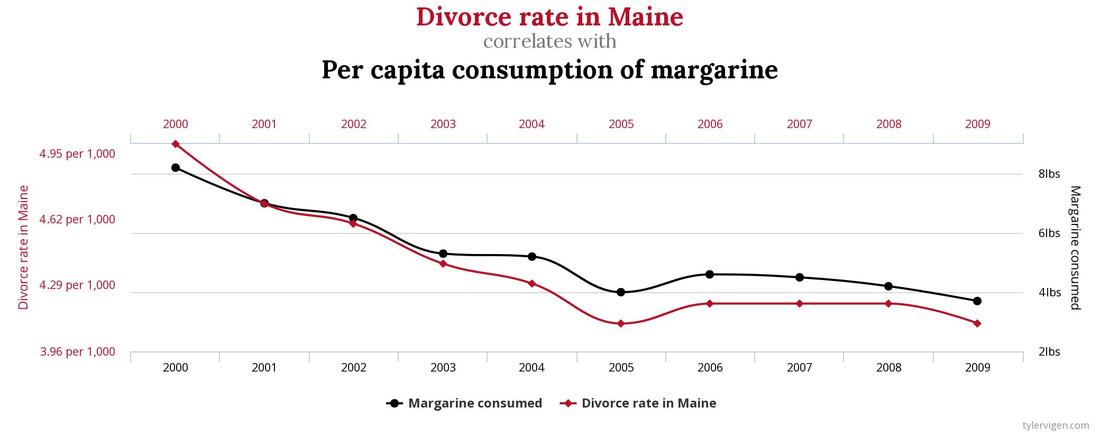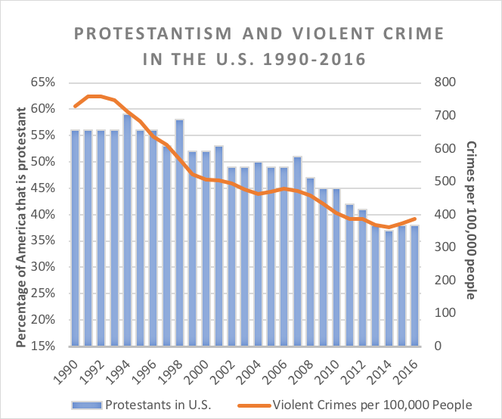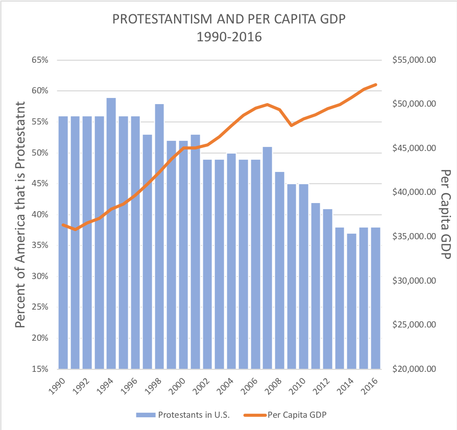 By David Barr Christians often credit or blame the changing fortunes of America on changes in our religious commitments. Some of these theories are nutty: I once heard a guy claim that Hurricane Katrina was punishment for a slackening of U.S. support for Israel at the time. Others aren't nutty, but still pretty strident: folks like Bill O’Reilly and Mike Huckabee have pointed to the end of prayer in schools as the cause of things like school shootings (okay, I take it back; that's still pretty nutty).* More subtly, many Christians point to evangelism as a way to address problems like crime and poverty or credit the Christian religion with successes in our nation’s past. People envision the connection between religion and the fate of the nation in different ways. Some, like the man with the Israel-Katrina theory, see God as directly intervening to bless or smite us in response to our policy decisions. Others see a more naturalistic cause and effect: Christianity makes us better people and a nation thrives when its people are more honest and hardworking, less violent, and so on. However they see it working, it is very common for American Christians to think our current problems are because we have abandoned Christianity. This is a really bad idea, and for a few reasons.  First, it’s really hard to prove one thing caused another thing when it comes to historical trends, even if they happen at the same time. There are all sorts of trends that seem to match up but do so only accidentally (for those interested, this is called ‘spurious correlation’). For one, there was a greater than 99% correlation between the divorce rate in Maine and the amount of margarine consumed in the U.S. from 2000-2009 (Check out this site to see this example and many others. You can even make your own.). That something happened when some other thing happened doesn’t mean it happened because of it. It is hard to prove that the decline of Christianity has a more than spurious correlation with the rise of problems in society. There are all sorts of terrible things in the news all the time and it is understandable to associate these with the decline of Christian influence. Showing the connection between the two is another story. Actually, it’s much worse than that: in the case of most trends in America, we should hope that any correlation is spurious. That is, we should hope that the decline of Christianity is not causally connected to a number of contemporary shifts in society. The problem is this: while the share of Americans who identify as Christian has dropped significantly over the last few decades, most of the aspects of our wellbeing that we can measure have gotten better. If the trends are shown to be related, this is bad news for people advocating for Christianity. Let’s take the issue of violence by looking at the number of Christians in the U.S. and compare it to the rate of violent crimes. [Since the number of people who identify as Catholic has remained fairly steady over the last thirty years, with percentages in the low 20s, it was simpler to just use numbers for Protestants. I know this is an imperfect measure of how “Christian” a country is, but I just needed a way to visualize the decline in Christianity that people cite to explain our current problems, and this seemed as good as any.] Remember, if abandoning Christianity is the problem, crime should go up as the religion numbers go down. This is what I found: This is a beautiful correlation, but not the one we would want. As Christianity has decreased, our society has actually become less violent. From 1992-2016 the proportion of Americans who identify as Protestant dropped by a third. Over the same years, violent crime dropped by nearly half. The same pattern holds in other areas as well: racist attitudes have declined and divorces and abortions are both down over the same period. The country has gotten richer as well: In a variety of measures, then, we are safer, healthier, wealthier, and generally better off than we were thirty years ago, when more of us were Christian. Now, some things have certainly gotten worse. Economic inequality is at an all-time high. Wages have stagnated over this period. Opioid abuse is up. If you want to show things are getting worse, you can certainly pick a set of problems that fit that pattern (though, for whatever reason, people don't seem to blame the issues that are actually getting worse on the decline of Christianity, at least that I’ve seen). I want to be really clear about what I’m saying here and what I’m not. I’m not saying Christians are bad or that Christianity makes people violent, racist, or divorced (it would have been weird for me to have become a Christian ethicist if I think Christianity makes people less ethical). I think the correlation of Christian belief with these other trends is spurious, like margarine consumption with divorce in Maine. The factors driving society are many and not just reducible to levels of church membership. Because of this, preventing crime and building strong civil society are difficult tasks that depend on our ability to create and maintain transparent and responsible government and strong institutions, in addition to whatever cultural factors are in play. The problem with giving credit or blame to religion and morality as the decisive factors driving societal trends is not that the numbers don’t work in this case, but that it is too simplistic in every case. Even if things like crime, the economy, failed marriages, and so on were getting worse, it would still be a reductionist simplification to blame them on the decline of Christianity. Such simplistic explanations deflect our attention from the hard work of pursuing the broad range of pragmatic and effective solutions our problems require. It just happens to be particularly unwise to use such explanations in the present case, when so many things are actually getting better, not worse, even as the number of those who identify as Christian declines. So, to my fellow Christians: please, please stop saying things are getting worse because we have abandoned Christianity. I’m afraid people will accept your premise that society improves or declines in step with its religion, check the numbers, and conclude Christianity is bad for us. Instead, let’s abandon the premise altogether and get down to the serious work of responsible citizenship that we share with people of all faiths and none. * Anybody remember Carman?
0 Comments
Leave a Reply. |
Archives
September 2020
Categories
All
|


 RSS Feed
RSS Feed